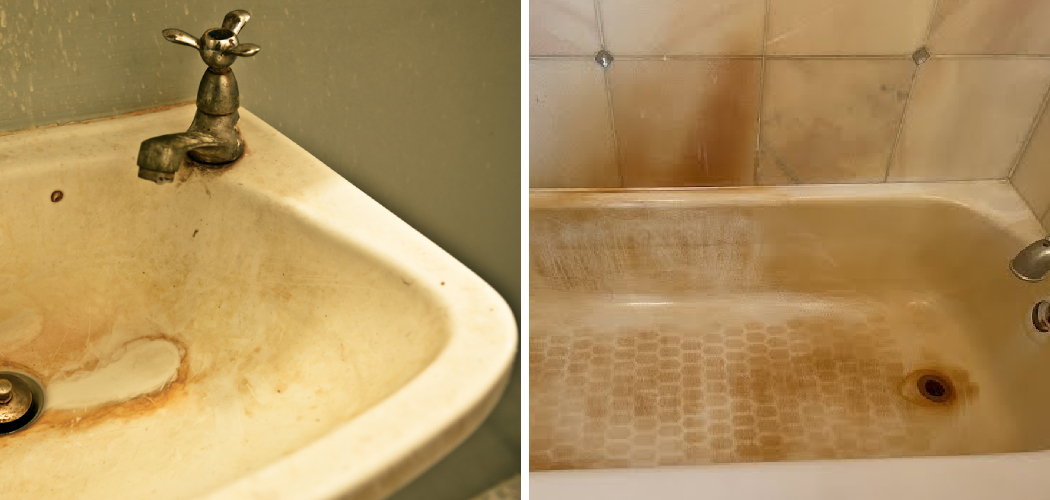Ever stepped into your bathroom, only to be greeted by unsightly hard water stains marring your pristine plastic bathtub? You’re not alone! Hard water stains are a common nuisance for many homeowners.
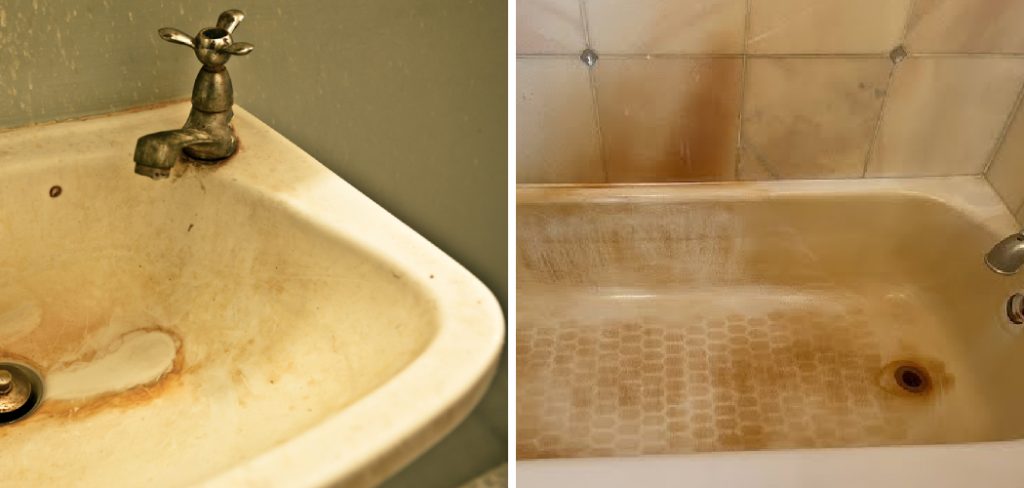
They don’t just look bad; they can also damage the surface of your tub over time. In this post on how to remove hard water stains from plastic bathtub, we’ll guide you through the essential steps to banish those pesky stains for good.
You’ll discover the tools you’ll need, learn a step-by-step cleaning process, and get tips on whether you should consult professionals. By the end of this guide, you’ll be well-equipped to restore your bathtub’s sparkle.
Why Removing Hard Water Stains is Essential
Hard water stains are more than just an eyesore. They can weaken the structure of your bathtub over time, leading to costly repairs or replacements.
The minerals in hard water, mainly calcium and magnesium, can build up, creating tough, stubborn stains. Additionally, these stains can harbor bacteria and mold, further compromising your bathroom’s hygiene. Understanding why it’s crucial to remove these stains can motivate you to tackle the problem head-on.
It’s worth noting that plastic bathtubs are more prone to hard water stains than other materials like porcelain or fiberglass. Plastic is porous, meaning it can absorb mineral deposits and make them harder to remove.
Needed Materials
Before you start, make sure you have all the necessary materials on hand. This will make the process smoother and more efficient.
White Vinegar:
White vinegar is a highly effective and natural cleaning agent that can tackle hard water stains. Its acidic properties make it an excellent choice for dissolving mineral deposits.
Baking Soda:
Baking soda acts as a gentle abrasive, making it perfect for scrubbing away tough stains without damaging the plastic surface.
Distilled Water:
Distilled water is free from minerals, making it ideal for creating a cleaning solution that won’t leave behind any additional residue.
Spray Bottle:
A spray bottle will make it easier to apply your cleaning solution evenly onto the stained areas of your bathtub.
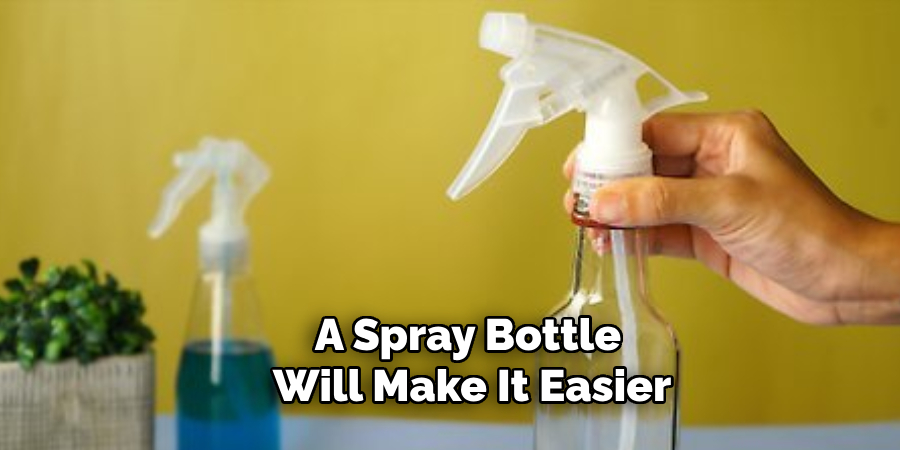
Soft Cloth or Sponge:
You’ll need a soft cloth or sponge to scrub away the stains without causing any damage to the plastic surface.
Plastic Scraper:
A plastic scraper can come in handy for removing any stubborn, stuck-on residue from your bathtub.
With these items, you’ll be ready to tackle even the most stubborn hard water stains.
Step-by-step Guidelines on How to Remove Hard Water Stains From Plastic Bathtub
Step 1. Clean the Tub’s Surface
Start by giving your bathtub a basic cleaning. Remove any soap scum or loose dirt using a mild detergent and a non-abrasive scrub pad. Rinse thoroughly with water. This initial cleaning makes it easier to see and treat the hard water stains. It also prevents any dirt or debris from interfering with the cleaning process.
Step 2. Prepare a Vinegar Solution
Fill a spray bottle with equal parts white vinegar and water. Vinegar is a natural cleaner that can effectively break down the mineral deposits causing the stains. Spray the solution generously over the stained areas and allow it to sit for at least 15 minutes. You can also use straight vinegar for tougher stains, but be sure to wear gloves and work in a well-ventilated area.
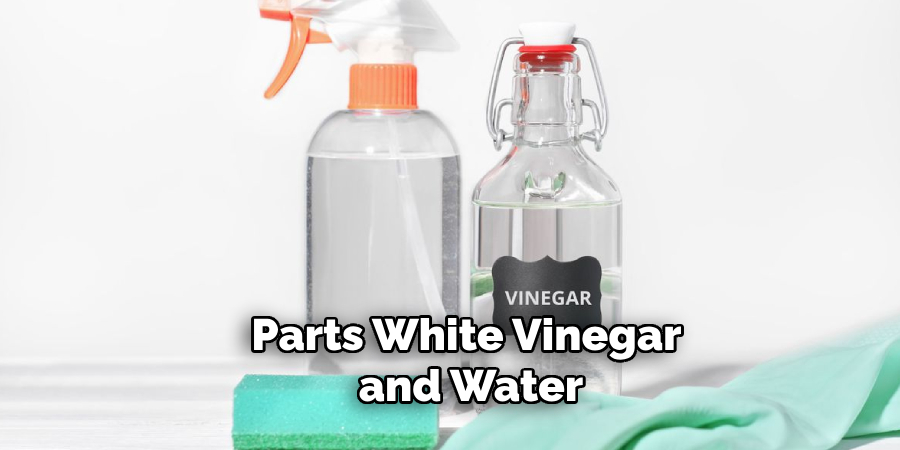
Step 3. Scrub the Stains
After the vinegar solution has had time to work its magic, scrub the stains using a non-abrasive scrub pad. For tougher stains, you might need to apply a bit more pressure. Be thorough, but avoid using anything too rough that could scratch the plastic surface of your tub. It’s also a good idea to periodically rinse your scrub pad in water to prevent any residue from building up.
Step 4. Apply Baking Soda Paste
For stubborn stains that vinegar alone can’t remove, create a paste using baking soda and water. Apply this paste directly to the stains and scrub with your non-abrasive pad. Baking soda adds an extra level of abrasiveness to help lift the toughest stains without damaging your tub. It’s also a mild alkaline, which can help neutralize the acid from the vinegar. There may be some fizzing when the two substances come into contact, but this is normal and will not harm your tub.
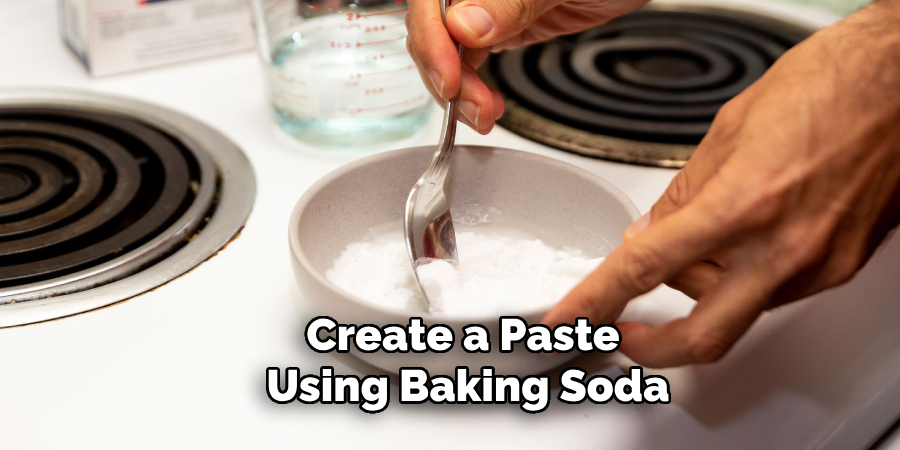
Step 5. Use Lemon Juice for Added Power
Lemon juice isn’t just for lemonade! The acidity in lemon juice can help dissolve mineral deposits. Apply lemon juice to the stains and scrub again. For an added boost, you can mix lemon juice with baking soda to create a powerful cleaning paste. There’s no need to rinse off the lemon juice, as it will leave a pleasant smell behind.
Step 6. Treat with Hydrogen Peroxide
If stains persist, hydrogen peroxide can be your next line of defense. Apply it directly to the stains and allow it to sit for 10-15 minutes before scrubbing. Hydrogen peroxide is a safe, powerful cleaner that can tackle even the most stubborn mineral deposits. The fizzing action when it reacts with the stains can also help to loosen them.
Step 7. Rinse and Dry
Once you’ve scrubbed away the stains, rinse the entire tub thoroughly with warm water to remove any cleaning residue. Dry the tub with a microfiber cloth to prevent new stains from forming. It’s important to dry the tub after each use to prevent hard water stains from building up again. But if you don’t have a microfiber cloth, any soft cloth or towel will do.
Following these steps on how to remove hard water stains from plastic bathtub will help you remove hard water stains from your plastic bathtub with ease and keep them at bay in the future.
Do You Need to Use Professionals?
While these DIY methods are highly effective, there are instances where you might need professional help. If your hard water stains are particularly stubborn or if your bathtub has other issues like cracks or severe discoloration, consulting a professional cleaner can be beneficial. They have specialized tools and cleaning solutions that can tackle the toughest stains efficiently.
You now have all the information you need to remove hard water stains from your plastic bathtub effectively. With the right materials and a little elbow grease, you can restore your tub’s sparkle and keep it looking like new for years to come. No more pesky hard water stains ruining the aesthetic of your bathroom – it’s time to banish them for good! So, roll up your sleeves and get ready to give your bathtub the TLC it deserves. Happy cleaning!
How Much Will It Cost?
The cost of removing hard water stains varies depending on whether you go the DIY route or hire professionals. DIY methods are generally inexpensive, costing around $10 to $20 for all necessary materials. Professional cleaning services, on the other hand, can range from $100 to $300, depending on the severity of the stains and the size of your bathtub. Weighing the costs against the benefits can help you decide which option is best for your situation.

You can also save money by preventing hard water stains in the first place. Regular cleaning and maintenance, such as wiping down your tub after each use and using a water-softening system, can help prevent mineral buildup and costly cleaning efforts in the future. In the long run, taking preventive measures can save you time, effort, and money.
Additional Tips
Prevent Future Stains
To keep your bathtub looking pristine, consider installing a water softener. This device reduces the mineral content in your water, preventing hard water stains from forming in the first place. Regular maintenance and cleaning can also go a long way in keeping your tub stain-free.
Use Protective Coatings
Applying a protective coating to your bathtub can help repel water and reduce the likelihood of stains. Products like Rain-X, typically used on car windshields, can be effective in a home setting.
Regular Cleaning Routine
Incorporate a regular cleaning routine into your schedule to prevent stains from becoming too ingrained. A quick wipe-down after each use can make a significant difference.
Frequently Asked Questions
Q: Can I Use Bleach to Remove Hard Water Stains?
A: While bleach can be effective for some types of stains, it’s not recommended for hard water stains. Bleach doesn’t effectively break down mineral deposits and can damage the plastic surface of your tub.
Q: How Often Should I Clean My Bathtub to Prevent Hard Water Stains?
A: A regular cleaning schedule is essential. Aim to clean your bathtub at least once a week. If you have particularly hard water, you might need to clean more frequently.
Q: Are There Any Store-bought Cleaners That Work Well for Hard Water Stains?
A: Yes, there are several effective store-bought cleaners specifically designed for hard water stains. Products like CLR (Calcium, Lime, and Rust Remover) can be very effective. Always follow the manufacturer’s instructions for use.
Conclusion
Removing hard water stains from your plastic bathtub doesn’t have to be a daunting task. With the right materials and a step-by-step approach, you can restore your tub’s gleam and keep it looking great for years to come.
Whether you opt for DIY solutions or decide to bring in professionals, taking action now will save you time and effort in the long run. Ready to tackle those stains? Begin today and enjoy a sparkling clean bathtub. Thanks for reading this article on how to remove hard water stains from plastic bathtub.

